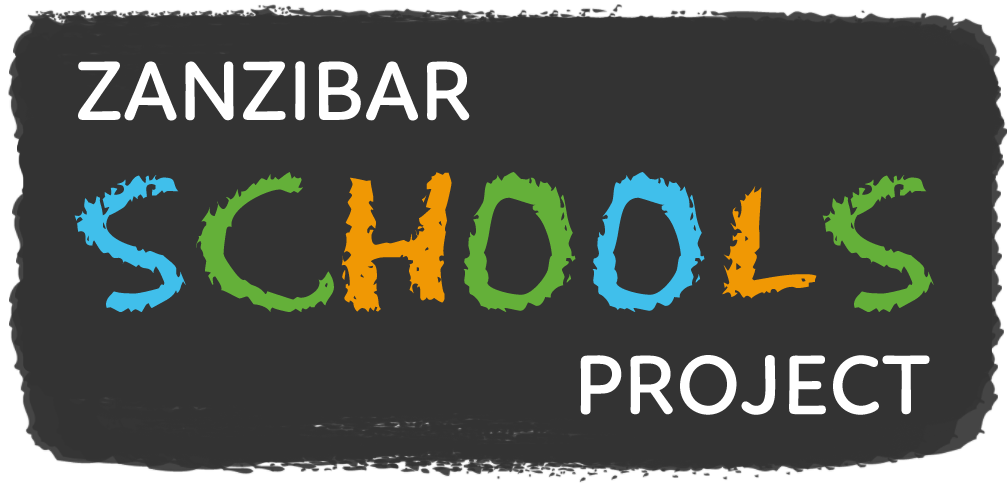Saturday January 23: Permaculture day! An exciting sustainable project has just come to fruition(!) in Zanzibar. After only 3 months, the first cohort of students graduated from the Permaculture Institute of Zanzibar. The land that’s being used belongs to a local Zanzibar resident and she has allowed the Institute to farm the land. The students learn about how to work with the land to grow a range of suitable crops. In addition to students from Fumba (who are involved in town planning), and a musician who is creating a sustainable artistic community, there were 5 students from PLCI. They will be developing some of the land near the PLCI chicken farm.
Sunday January 24: A visit to the orphanage with Gasica. A friend had sent out 3 boxes filled with toys, colouring books, pencils, clothes and shoes. Gasica regularly visits the orphanage and was happy to help make sure the donated items reached worthy recipients. One of the teenagers showed Ann around and related details of her life at the orphanage. Apart from school, they have visiting teachers who help them with maths and English. After much wrangling, Gasica is now able to take them out on Sundays. The children’s ages span 18 months to 18 years of age. They may not all be orphans, some of the children come from families that don’t have the resources to cope with the number of children in the family. As in the rest of Zanzibar society, the older ones look after the younger ones.
The process of allocating toys and clothes was very orderly and fair. The older teenagers spread out the toys on a table in the library and children came in one by one to choose an item. The same process was repeated with clothes and shoes. Everyone was delighted with their new items and the older girls sang a song which was recorded on video and sent to the kind donor.
Monday January 25: Back at school we’ve been investigating the library, its books and resources. A former teacher is the librarian. He was given the job as he is going blind and he would prefer to be pensioned off so that he could use the lump sum to have the eye operation he needs in India. Sadly, the government refuses to let him retire. The library contains books donated through “My Book Buddy” scheme and other books that are mostly in English. The librarian reports that about 40 children per week borrow library books.
Reading for kids here represents a challenge as, once school is out, there are chores (looking after younger children, fetching water, etc.) that take priority. Add to this the lack of good lighting in homes where night closes in very rapidly.
Tuesday January 26: Caroline taught her computer skills class for the teachers. She started with Microsoft WORD but soon realised that basic keyboard skills are needed. Those present in the class have no experience with any form of keyboard (never even seen a typewriter). There are two working computers in the computer room, one of which doesn’t have any application software (e.g. Microsoft WORD). We loan them our computers to get the ball rolling. One of our aims is to improve computer availability at the school both for teachers and students. It sometime feels as though Unguja Ukuu is on a different planet.
Wednesday January 27: The teaching topic is use of the conditional (if……). The intermediate students were asked to complete the statement “If I could have any job I wanted….. We made it into a team game pitting girls against boys. The first team with the most correct answers won. To spice up the game, half way through additional points were awarded for ambitious answers. One boy suggested “If I could have any job I wanted I’d be President of Zanzibar” which was trumped by agirl stating she’d be Queen of England. The boys were outraged that the girls won and accused Ann of gender favouritism.
The younger group reviewed terminology associated with football, discussion of other sports and had a boxing demonstration from Caroline. This went down well with the girls who demonstrated a very proficient combination of punches. On Wednesday evening we were invited by one of our adult students to attend a local dhow race on the very atmospheric beach of Unguja Ukuu. The whole village turned out making it a splendid occasion indeed. It was well off the beaten tourist track and we had VIP plastic seats with a great view along with an endless supply of coconut water. Corporate entertaining?
Thursday January 28: We accompany Gasica to Dar today to collect his passport and, hopefully his UK visa. Sadly, the visa has been refused on financial grounds. It appears the visa assessor in Pretoria didn’t bother to read the large collection of letters of recommendation from two Rotary Clubs and two charitable organisations that accompanied the application. They also appeared to ignore the detailed description of the funding we had in place to support him.
Friday January 22: A visit to the friendly British Consul in Zanzibar to investigate what can be done to help Gasica. He confirms our suspicions that visa decisions are made on a tick box system with a few basic criteria and that the assessors are often under time pressure to process as many applications in as short a time as possible. We learn that the visa interview Gasica attended in Daar was conducted by an outsourcing agency, which may explain their lack of thorough questioning. They only asked him one question. The Consul agrees to investigate what further documentation could help, but isn’t holding out much hope. Plan B is to resubmit the application for a course in November, assuming we can find out more about what may have led to the refusal. We will fight on!
